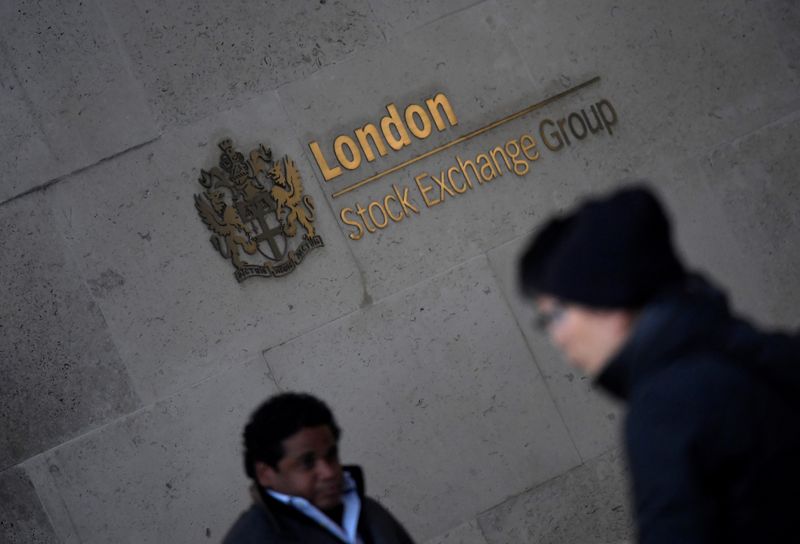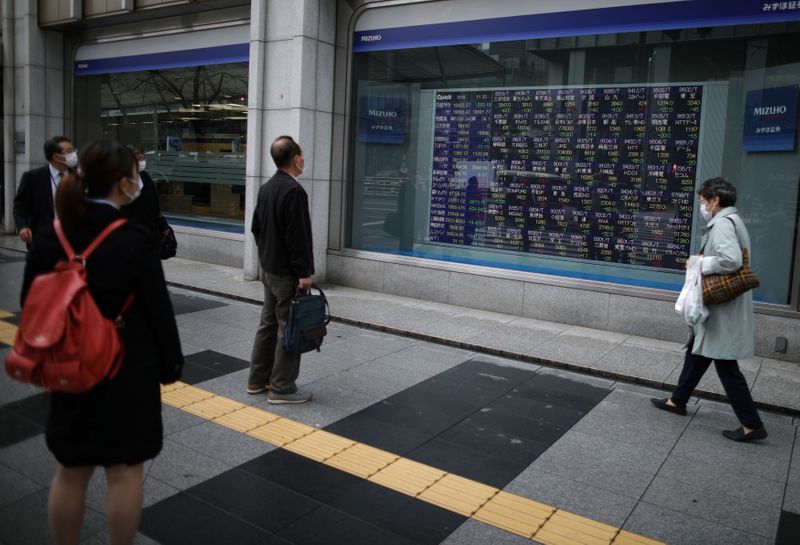By Marc Jones
LONDON (Reuters) - Equity markets slipped on Thursday on concerns about the long-term impact of the new coronavirus and simmering U.S.-China tensions, though those worries couldn't stop oil prices from marching to a 2-1/2 month high.
The London (FTSE), Frankfurt <.GDAX> and Paris (FCHI) bourses and Wall Street futures were all 0.7%-1% lower in early trading, while the euro (EUR=) and pound
It was also a big day for data and central bankers. Purchasing manager index surveys (PMIs) from Germany and France had already confirmed that economic activity has begun to return, though they were far from stellar.
Despite better-than-expected euro zone-wide figures Germany's improvement undershot analysts' forecasts, and it was the third month in a row that the surveys were firmly in economic contraction territory.
"While we have seen resilience in European markets there is still caution, and we can't seem to get over the peaks (in equity markets) that we saw at the end of last month," said CMC Markets' senior analyst Michael Hewson.
"We have got PMIs improving but you would expect that because lockdowns are being eased. They are still rubbish, they are just less rubbish than they were in April."
Italy and Spain's government borrowing costs also rose slightly as bond market investors waited for bond sales from both and for more details on a proposed 500 billion euro ($550 billion) EU coronavirus recovery fund.
The Franco-German driven plan would push the bloc in the direction of joint financing but has been met with resistance from a number of other northern European countries who want the aid to be in the form of loans to be repaid rather than grants.
The 10-year BTP yield was up 1.1 basis points at 1.64%, not far from the 1.59% low it touched on Tuesday, while Spanish yields rose 2.4 bps at 0.73%.
OIL ON THE BOIL
U.S. weekly jobless claims are seen coming in later at a seasonally adjusted 2.4 million, according to a Reuters survey of economists - high but well off the record 6.867 million seen at the end of March.
There will also be a raft of U.S. Federal Reserve speakers, including Fed chair Powell, and two big emerging market central banks – Turkey and South Africa - are expected to cut their interest rates again.
In Asia overnight, Japan's Nikkei stock index (N225) slid 0.2% after data there showed the country's exports collapsed 21.9% in April. Another dismal trade report came from Korea where 20-day exports declined by 20.3% year-on-year and imports fell by 16.9%, though Korean stocks still ended the day higher.
Shares in China had ended down 0.2% after more sparring with Washington over the coronavirus and Hong Kong and Taiwan emerged. Friday's annual National People's Congress (NPC) meeting was also looming after a 2-1/2 month delay due to COVID-19.
The focus will be on Premier Li Keqiang's 2020 work report where he is expected to announce key economic targets and details on fiscal stimulus plans.
In the currency markets, the dollar climbed to $1.0956 per euro (EUR=EBS) and rose to $1.2291 against the British pound
No such issues in the oil world though, where U.S. crude rose 1.9% to $34.09 a barrel and Brent jumped 1.8% to $36.39 per barrel. Both are now at the highest since early March on hopes that demand for fuel will see a robust global pick up.

U.S. crude inventories fell by 5 million barrels last week, against expectations in a Reuters poll for a 1.2 million-barrel rise, Energy Information Administration (EIA) data had showed.
